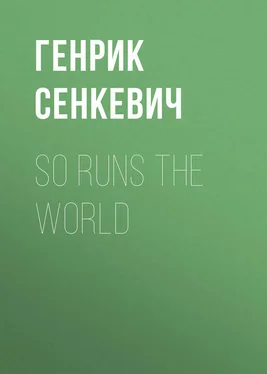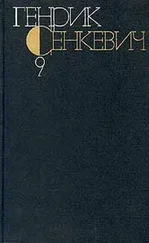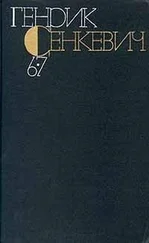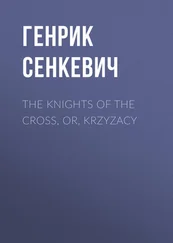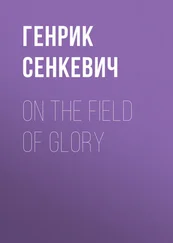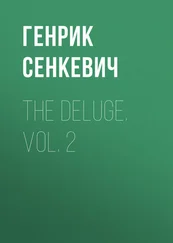Генрик Сенкевич - So Runs the World
Здесь есть возможность читать онлайн «Генрик Сенкевич - So Runs the World» — ознакомительный отрывок электронной книги совершенно бесплатно, а после прочтения отрывка купить полную версию. В некоторых случаях можно слушать аудио, скачать через торрент в формате fb2 и присутствует краткое содержание. Жанр: foreign_antique, foreign_prose, на английском языке. Описание произведения, (предисловие) а так же отзывы посетителей доступны на портале библиотеки ЛибКат.
- Название:So Runs the World
- Автор:
- Жанр:
- Год:неизвестен
- ISBN:нет данных
- Рейтинг книги:5 / 5. Голосов: 1
-
Избранное:Добавить в избранное
- Отзывы:
-
Ваша оценка:
- 100
- 1
- 2
- 3
- 4
- 5
So Runs the World: краткое содержание, описание и аннотация
Предлагаем к чтению аннотацию, описание, краткое содержание или предисловие (зависит от того, что написал сам автор книги «So Runs the World»). Если вы не нашли необходимую информацию о книге — напишите в комментариях, мы постараемся отыскать её.
So Runs the World — читать онлайн ознакомительный отрывок
Ниже представлен текст книги, разбитый по страницам. Система сохранения места последней прочитанной страницы, позволяет с удобством читать онлайн бесплатно книгу «So Runs the World», без необходимости каждый раз заново искать на чём Вы остановились. Поставьте закладку, и сможете в любой момент перейти на страницу, на которой закончили чтение.
Интервал:
Закладка:
Historical novels began in England, or rather in Scotland, by the genius of Walter Scott, followed in France by Alexandre Dumas père . These two great writers had numerous followers and imitators in all countries, and every nation can point out some more or less successful writer in that field, but who never attained the great success of Sienkiewicz, whose works are translated into many languages, even into Russian, where the antipathy for the Polish superior degree of civilization is still very eager.
The superiority of Sienkiewicz's talent is then affirmed by this fact of translation, and I would dare say that he is superior to the father of this kind of novels, on account of his historical coloring, so much emphasized in Walter Scott. This important quality in the historical novel is truer and more lively in the Polish writer, and then he possesses that psychological depth about which Walter Scott never dreamed. Walter Scott never has created such an original and typical figure as Zagloba is, who is a worthy rival to Shakespeare's Falstaff. As for the description of duelings, fights, battles, Sienkiewicz's fantastically heroic pen is without rival.
Alexandre Dumas, notwithstanding the biting criticism of Brunetière, will always remain a great favorite with the reading masses, who are searching in his books for pleasure, amusement, and distraction. Sienkiewicz's historical novels possess all the interesting qualities of Dumas, and besides that they are full of wholesome food for thinking minds. His colors are more shining, his brush is broader, his composition more artful, chiselled, finished, better built, and executed with more vigor. While Dumas amuses, pleases, distracts, Sienkiewicz astonishes, surprises, bewitches. All uneasy preoccupations, the dolorous echoes of eternal problems, which philosophical doubt imposes with the everlasting anguish of the human mind, the mystery of the origin, the enigma of destiny, the inexplicable necessity of suffering, the short, tragical, and sublime vision of the future of the soul, and the future not less difficult to be guessed of by the human race in this material world, the torments of human conscience and responsibility for the deeds, is said by Sienkiewicz without any pedanticism, without any dryness.
If we say that the great Hungarian author Maurice Jokay, who also writes historical novels, pales when compared with that fascinating Pole who leaves far behind him the late lions in the field of romanticism, Stanley J. Weyman and Anthony Hope, we are through with that part of Sienkiewicz's literary achievements.
In the third period Sienkiewicz is represented by two problem novels,
"Without Dogma" and "Children of the Soil."
The charm of Sienkiewicz's psychological novels is the synthesis so seldom realized and as I have already said, the plastic beauty and abstract thoughts. He possesses also an admirable assurance of psychological analysis, a mastery in the painting of customs and characters, and the rarest and most precious faculty of animating his heroes with intense, personal life, which, though it is only an illusionary life, appears less deceitful than the real life.
In that field of novels Sienkiewicz differs greatly from Balzac, for instance, who forced himself to paint the man in his perversity or in his stupidity. According to his views life is the racing after riches. The whole of Balzac's philosophy can be resumed in the deification of the force. All his heroes are "strong men" who disdain humanity and take advantage of it. Sienkiewicz's psychological novels are not lacking in the ideal in his conception of life; they are active powers, forming human souls. The reader finds there, in a well-balanced proportion, good and bad ideas of life, and he represents this life as a good thing, worthy of living.
He differs also from Paul Bourget, who as a German savant counts how many microbes are in a drop of spoiled blood, who is pleased with any ferment, who does not care for healthy souls, as a doctor does not care for healthy people – and who is fond of corruption. Sienkiewicz's analysis of life is not exclusively pathological, and we find in his novels healthy as well as sick people as in the real life. He takes colors from twilight and aurora to paint with, and by doing so he strengthens our energy, he stimulates our ability for thinking about those eternal problems, difficult to be decided, but which existed and will exist as long as humanity will exist.
He prefers green fields, the perfume of flowers, health, virtue, to
Zola's liking for crime, sickness, cadaverous putridness, and manure.
He prefers l'âme humaine to la bête humaine .
He is never vulgar even when his heroes do not wear any gloves, and he has these common points with Shakespeare and Molière, that he does not paint only certain types of humanity, taken from one certain part of the country, as it is with the majority of French writers who do not go out of their dear Paris; in Sienkiewicz's novels one can find every kind of people, beginning with humble peasants and modest noblemen created by God, and ending with proud lords made by the kings.
In the novel "Without Dogma," there are many keen and sharp observations, said masterly and briefly; there are many states of the soul, if not always very deep, at least written with art. And his merit in that respect is greater than of any other writers, if we take in consideration that in Poland heroic lyricism and poetical picturesqueness prevail in the literature.
The one who wishes to find in the modern literature some aphorism to classify the characteristics of the people, in order to be able afterward to apply them to their fellow-men, must read "Children of the Soil."
But the one who is less selfish and wicked, and wishes to collect for his own use such a library as to be able at any moment to take a book from a shelf and find in it something which would make him thoughtful or would make him forget the ordinary life, – he must get "Quo Vadis," because there he will find pages which will recomfort him by their beauty and dignity; it will enable him to go out from his surroundings and enter into himself, i. e ., in that better man whom we sometimes feel in our interior. And while reading this book he ought to leave on its pages the traces of his readings, some marks made with a lead pencil or with his whole memory.
It seems that in that book a new man was aroused in Sienkiewicz, and any praise said about this unrivaled masterpiece will be as pale as any powerful lamp is pale comparatively with the glory of the sun. For instance, if I say that Sienkiewicz has made a thorough study of Nero's epoch, and that his great talent and his plastic imagination created the most powerful pictures in the historical background, will it not be a very tame praise, compared with his book – which, while reading it, one shivers and the blood freezes in one's veins?
In "Quo Vadis" the whole alta Roma , beginning with slaves carrying mosaics for their refined masters, and ending with patricians, who were so fond of beautiful things that one of them for instance used to kiss at every moment a superb vase, stands before our eyes as if it was reconstructed by a magical power from ruins and death.
There is no better description of the burning of Rome in any literature. While reading it everything turns red in one's eyes, and immense noises fill one's ears. And the moment when Christ appears on the hill to the frightened Peter, who is going to leave Rome, not feeling strong enough to fight with mighty Caesar, will remain one of the strongest passages of the literature of the whole world.
After having read again and again this great – shall I say the greatest historical novel? – and having wondered at its deep conception, masterly execution, beautiful language, powerful painting of the epoch, plastic description of customs and habits, enthusiasm of the first followers of Christ, refinement of Roman civilization, corruption of the old world, the question rises: What is the dominating idea of the author, spread out all over the whole book? It is the cry of Christians murdered in circuses: Pro Christo !
Читать дальшеИнтервал:
Закладка:
Похожие книги на «So Runs the World»
Представляем Вашему вниманию похожие книги на «So Runs the World» списком для выбора. Мы отобрали схожую по названию и смыслу литературу в надежде предоставить читателям больше вариантов отыскать новые, интересные, ещё непрочитанные произведения.
Обсуждение, отзывы о книге «So Runs the World» и просто собственные мнения читателей. Оставьте ваши комментарии, напишите, что Вы думаете о произведении, его смысле или главных героях. Укажите что конкретно понравилось, а что нет, и почему Вы так считаете.
